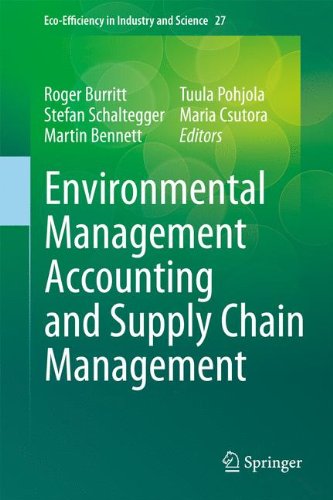

Most ebook files are in PDF format, so you can easily read them using various software such as Foxit Reader or directly on the Google Chrome browser.
Some ebook files are released by publishers in other formats such as .awz, .mobi, .epub, .fb2, etc. You may need to install specific software to read these formats on mobile/PC, such as Calibre.
Please read the tutorial at this link: https://ebookbell.com/faq
We offer FREE conversion to the popular formats you request; however, this may take some time. Therefore, right after payment, please email us, and we will try to provide the service as quickly as possible.
For some exceptional file formats or broken links (if any), please refrain from opening any disputes. Instead, email us first, and we will try to assist within a maximum of 6 hours.
EbookBell Team

4.4
12 reviewsOngoing concern about the need to promote environmental management accounting has resulted in this, the fifth volume in the Environmental and Sustainability Management Accounting Network (EMAN) series. Drawing inspiration from the 2007 EMAN conference in Finland on the links between environmental management accounting and supply chain administration, the book includes a number of research papers presented there as well as several independent contributions that represent a range of perspectives on the topic.
This volume’s focus on the environmental accounting of supply chain processes is of particular relevance because these processes supply data about the environmental impact of relationships between business organisations, an area where the boundary separating internal and external accounting is ill-defined. Here, contributors advocate what they term ‘accounting for cooperation’ as a more environmentally positive complement to the paradigmatic practice of ‘accounting for competition’.
In addition to analyzing the supply chain, a number of chapters are based on papers presented to the EMAN-EU conference on sustainability and corporate social responsibility accounting, held in Hungary in 2008. Corporate social responsibility accounting is also a boundary-spanning function requiring awareness of the interface between an organisation’s internal accounting, and that which has an external function through its social responsibility to different groupings.
Finally, in acknowledgement of growing international engagement with environmental management accounting following the introduction of international guidelines in 2005, the book includes papers from the first EMAN Global conference on integrated environmental management accounting for sustainable development held in South Africa in 2007.
This publication is required reading for anyone wanting to keep abreast of the latest developments in this field. Readers should also visit EMAN’s website at http://www.eman-global.net.